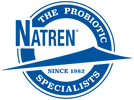Probiotics has turned into a marketing buzzword, incorporated into advertising plans for all kinds of products, but how do consumers know what works and what doesn’t? The market for probiotics is growing at an alarming pace with very little accurate information accessible to the public.
Everything from packaged goods to cold brew coffee now claims to be a source of probiotics. This fad is leading to more and more “probiotic” junk food on the shelves at your local grocery store. But do you really need probiotics in everything you eat and drink? And what kind of bacteria can last heating, pasteurization, cooking and all the processing steps that went into creating these various foods and drinks?
What is it about Probiotics?
A 2015 poll conducted by the National Marketing Institute found that 42 percent of consumers in this country want probiotics in their diet. That number is up from 12 percent in 2008. Adding bacteria to staple products is a practical way for manufacturers to turn a common brand into a luxury item complete with a high price tag and fancy packaging. The question is do these shoppers know the difference between effective and helpful probiotics and the stuff that really does your body no good.
Not all probiotics are created equally
Not every type of bacteria available can be called a probiotic. Dr. Gregor Reid, professor of microbiology and immunology at the University of Western Ontario, offers a working definition:
“…beneficial organisms that humans have evolved with
and that are naturally present in the healthy gut.”
On that list are species such as Lactobacillus and Bifidobacteria. They are known for producing short-chain fatty acids and research continues to support their use as beneficial to the human body. These types of probiotics may help modulate the immune system and keep other organisms in check.
Many of the “probiotic” junk foods littering the market today contain novel organisms like Bacillus coagulans. This is a soil-based bacterium that is stable when processed with heat or pasteurization. That makes it an attractive choice for manufacturers because most other probiotics are fragile and break down during processing.
The problem is homeostatic soil organisms do not fit the standard definition of helpful probiotics. Reid says, “We don’t know what role this organism plays in healthy people. Why do you want to take it in the first place? Until scientists definitively show in human studies what it really does for you, I wouldn’t recommend it for anybody.” And that’s coming from a microbiologist and immunologist.
Several companies in the USA are using these soil borne bacteria such as the genus Bacillus because they are stable since they produce spores. Spores can survive extremes such as heating, freezing, drying and radiation– so refrigerated storage is not required. This is quite convenient for the manufacturer that no longer has to worry about producing, storing and shipping a cold product. But, we are left to wonder if this is a safe practice? Also, if a spore by definition is an inactive vegetative state of bacteria this leads us to wonder — how do we know if it ever becomes active inside our body? Astoundingly, one company that uses these bacteria has published a study showing that less than 10% of their spores germinated into an active (and therefore useful) form! There is additional concern that these organisms may be able to enter the blood stream in people with depressed immune systems and cause septicemia. There are so many well-studied, scientifically trialed probiotic strains, which are naturally occurring human flora that we simply don’t see the need to take a soil-based “probiotic.” It appears that the benefit here is solely to the manufacturer.
Doing Probiotics Right
Standardization is really the key to using probiotics the right way. Classification of these products should be based on data that already exists to show real gut and immune health benefits. Too many companies are putting their bottom line ahead of scientific proof and this is leading to consumer confusion about what works and what doesn’t.
What is the answer for consumers that want probiotics in their life, but only if they work? Why not take the most simplistic approach and use strains that stand the test of time. There are brands out there that offer natural bacterial strains with decades of research to back them up.
Do your homework before buying a brand with the “probiotic” tag on it. A company worth your time and money already has the studies to back up their product. In the meantime, regulatory bodies need to standardize the industry and force manufacturers to abide by specific guidelines like the probiotic labeling standards that have been completely ignored throughout the industry despite being read into Congressional Record. This will take the junk out of the probiotics marketplace and give shoppers the healthiest choices.
Standardization is a practice that Natren not only supports but also follows. The probiotic strains that Natren uses each have at least three decades of research to support them. This evidence-based proof is what shoppers should demand when they look for products that promise probiotic benefits. When you have a solid probiotic supplement, with proven health benefits, scientific studies and decades of research to bake it up, it simply isn’t necessary to take “probiotics” in things like drinks, butter and protein bars.
The post Do We Really Need Probiotics In Our Drinks, Butter And Protein Bars? appeared first on Natren Probiotics Blog.




0 comments